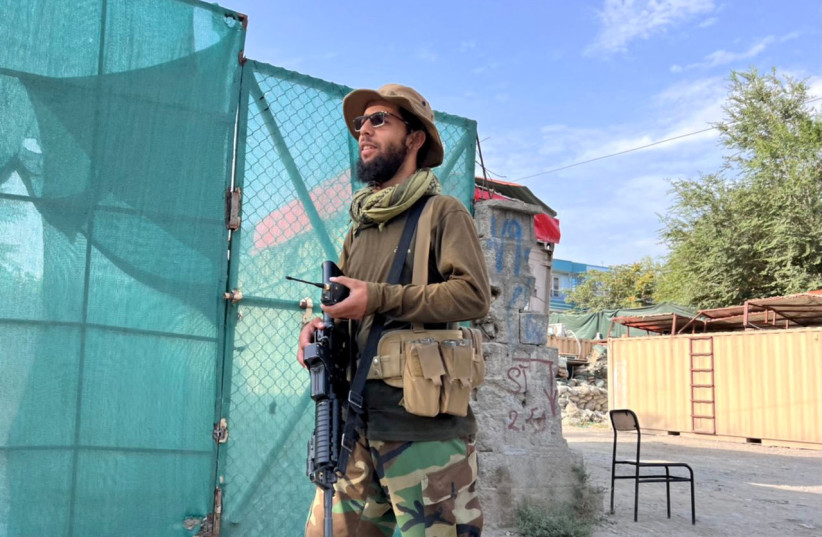Was the assassination of al-Qaeda leader Ayman al-Zawahiri – who was also one-time strategic planner for Osama Bin Laden, including of the 9/11 attacks on the US – the end of an era of killing mega-terrorists?
In some ways, it is a silly question.
Unfortunately, terrorism will never disappear from the world any more than evil will, and terrorist groups will always have leaders. However, the elimination of Zawahiri on Tuesday brings to an end the top arch-terrorists of the eras of multinational terrorist groups during and after 9/11.
Zawahiri's predecessors
The first who was killed was Abu Musab al-Zarqawi, founder of ISIS’s predecessor organization, who was taken down in 2006.

Bin Laden, the father of al-Qaeda, was killed by a stream of bullets in 2011.
Next came the founder of the larger ISIS organization, Abu Bakr al-Baghdadi, who was assassinated in 2019.
After that came Iran Islamic Revolutionary Guard Corps Quds Force Chief Qasem Soleimani, who was blown up by drones in 2020.
With Zawahiri being taken off the board, an entire generation of terrorist leaders has been removed.
These are not the only key terrorist leaders who have been killed since 9/11. More will be struck down in the future. Yet all of them are connected, and their “contributions” to transnational terrorism, beyond any single country where they happened to reside, were unmatched.
They are connected because al-Qaeda’s 9/11 attack brought fame and infamy to the worldwide jihadist group, making it the most famous and powerful terrorist group until then, leading to the US invasion of Iraq.
Though eventually ISIS, or some version of it, might have come into being on its own without Western intervention, a good deal of what became ISIS metastasized from the vacuum left after America toppled Saddam Hussein’s Sunni-led Iraqi regime.
By the mid-2000s, a huge amount of effort was already being poured in by Washington to kill Bin Laden, Zawahiri and Zarqawi, all in connection with 9/11 and the subsequent invasion of Iraq.
Some time later, Baghdadi replaced Zarqawi and expanded ISIS into a much greater threat, one that even put al-Qaeda to shame – which was ironic, since initially it was a smaller breakaway group.
Meanwhile, even as al-Qaeda lost some of its cache after Bin Laden was killed and after ISIS outgrew it, Zawahiri’s strategic acumen maintained it as a global force to be reckoned with.
What will happen in the future?
With Baghdadi and now Zawahiri gone, the “giants” who made al-Qaeda and ISIS into threats far beyond what any prior terrorist group had achieved have faded from the world stage.
Soleimani is somewhat different from the others in that he had direct state support for his global terrorism plans, but can still be considered part of the same group. Soleimani took leadership of the Quds Force at the time when 9/11 and the 2003 Iraq War were reshaping the Middle East and the world. He was so deeply in bed with terrorist proxy groups around the world that he was more of a traveling terrorism leader-consultant-funder than he was a standard Iranian government official.
After each of these five men were assassinated, most defense officials said they were not replaceable and that it would take time for their groups to recover, if they were able to recover at all.
Their deaths were viewed as near the top of the relevant presidents’ victories during their terms, and were widely celebrated in the media. But it might not carry the same punch with the public or with defense officials when future terrorist leaders are hit.
As for the terrorist groups themselves, at least for now, they seem to be returning to what such groups once were: a second, lower-grade annoyance compared with first-level security dangers from rival countries.
In that sense, Zawahiri’s death may signal the end of an era – even as a reduced global war on terrorism continues indefinitely.
